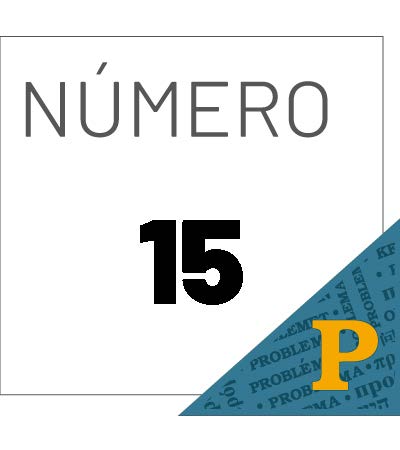The Moral Obligation to Perform Contracts: Some Preliminary Thoughts
¿Tiene uno la obligación de cumplir sus contratos? Para muchas perso-nas, la tendencia inicial sería contestar que “sí”, debido a la fuerte relación entre contra-tos y promesas, aunada con la convicción de que, en igualdad de condiciones, uno debe cumplir sus promesas. Sin embargo, un análisis más detenido de la pregunta sobre la obligación moral de cumplir los contratos, plantea complicaciones y dudas. En primer lugar, muchos han cuestionado la relación entre el contrato y las promesas, argumentan-do que los contratos y el derecho contractual se entienden mejor de alguna otra manera. En segundo lugar, muchos suelen pensar que nuestro deber de cumplir con nuestros acuerdos varía en función de la medida en que la decisión de celebrar el acuerdo se haya desviado del consentimiento óptimo, o de los hechos sobre la equidad de la relación de fondo y la sociedad en general. Parece ser que la obligación de cumplir un contrato varía según las circunstancias. La in-justicia en la sociedad, en la relación subyacente, en la negociación del acuerdo, o en las condiciones del mismo iría en contra de dicha obligación moral. También queda la pre-gunta de cuál sería el contenido de la obligación de cumplir el contrato, si es que existe. La mayoría de nosotros supondría que es una presunta obligación real por llevar a cabo, pero algunos sostendrían que se trata simplemente de una obligación de cumplir o pagar daños y perjuicios. Aunque el pago puntual de los daños y perjuicios —sin impugnar el incumplimiento, reclamar una cantidad menor de daños o amenazar con una litigación prolongada y costosa— ya sería un avance importante en las actuales prácticas comercia-les habituales.
Detalles del artículo
Uso de licencias Creative Commons (CC)
Todos los textos publicados por Problema. Anuario de Filosofía y Teoría del Derecho sin excepción, se distribuyen amparados con la licencia CC BY-NC 4.0 Internacional, que permite a terceros utilizar lo publicado, siempre que mencionen la autoría del trabajo y la primera publicación en esta revista. No se permite utilizar el material con fines comerciales.
Derechos de autoras o autores
De acuerdo con la legislación vigente de derechos de autor Problema. Anuario de Filosofía y Teoría del Derecho reconoce y respeta el derecho moral de las autoras o autores, así como la titularidad del derecho patrimonial, el cual será transferido —de forma no exclusiva— a Problema para permitir su difusión legal en acceso abierto.
Autoras o autores pueden realizar otros acuerdos contractuales independientes y adicionales para la distribución no exclusiva de la versión del artículo publicado en Problema. Anuario de Filosofía y Teoría del Derecho (por ejemplo, incluirlo en un repositorio institucional o darlo a conocer en otros medios en papel o electrónicos), siempre que se indique clara y explícitamente que el trabajo se publicó por primera vez en Problema.
Para todo lo anterior, deben remitir la carta de transmisión de derechos patrimoniales de la primera publicación, debidamente requisitada y firmada por las autoras o autores. Este formato debe ser remitido en PDF a través de la plataforma OJS.
Derechos de lectoras o lectores
Con base en los principios de acceso abierto las lectoras o lectores de la revista tienen derecho a la libre lectura, impresión y distribución de los contenidos de Problema por cualquier medio, de manera inmediata a la publicación en línea de los contenidos. El único requisito para esto es que siempre se indique clara y explícitamente que el trabajo se publicó por primera vez en Problema. Anuario de Filosofía y Teoría del Derecho y se cite de manera correcta la fuente incluyendo el DOI correspondiente.
Citas
Alces Peter A., A THEORY OF CONTRACT LAW: EMPIRICAL INSIGHTS AND MORAL PSYCHOLOGY (Oxford 2011).
Austin Regina, ‘‘The Black Community,’ Its Lawbreakers, and a Politics of Identification’, (1992) 65 SOUTHERN CALIFORNIA LAW REVIEW 1769.
Barnett Randy E., ‘Consenting to Form Contracts’ (2002) 71 FORDHAM LAW REVIEW 627-645.
Butler Paul, ‘Racially Based Jury Nullification: Black Power in the Criminal Justice System’ (1995) 105 YALE LAW JOURNAL 677.
Coleman Jules L., RISKS AND WRONGS (Cambridge 1992) 350-354.
Edmundson William A. (ed), THE DUTY TO OBEY THE LAW: SELECTED PHILOSOPHICAL READINGS (Rowman & Littlefield 1999).
Ekow N. Yankah, ‘Whose Burden to Bear? Privilege, Lawbreaking and Race’, CRIMINAL LAW AND PHILOSOPHY (forthcoming 2019), <https://link.springer.com/article/10.1007/s11572-019-09503-x>.
Epstein Richard E., ‘Unconscionability: A Critical Reappraisal’, (1975) 18 JOURNAL OF LAW AND ECONOMICS, 295, 306-308.
Farnsworth Allan E., CONTRACTS (4th ed., Aspen 2004), §12.4, at 741-742.
Finnis John, ‘Law as Co-ordination’ (1989) 2 RATIO JURIS 97.
Fried Charles, CONTRACT AS PROMISE (2nd ed., Oxford 2015).
Gardner John, ‘What is Tort Law For? Part 1: The Place of Corrective Justice’, (2011) 30 LAW AND PHILOSOPHY 1, 28-29.
Gilmore Grant, THE DEATH OF CONTRACT (Ronald K. L. Collins, ed., Ohio State University Press 1995).
Habib Allen, ‘Promises’, in Edward N. Zalta (ed), STANFORD ENCYCLOPEDIA OF PHILOSOPHY (2014) <https://plato.stanford.edu/entries/promises/>.
Hart H. L. A., ESSAYS ON BENTHAM (Oxford 1982) 254-255.
Heath Wellman Christopher & Simmons A. John, IS THERE A DUTY TO OBEY THE LAW? (Cambridge 2005).
Hobbes Thomas, LEVIATHAN (Richard Tuck, ed., Cambridge University Press 1998) [1651], ch. 20 144-145.
Hume David, MORAL PHILOSOPHY (Geoffrey Sayre-McCord ed, Hackett 2006) 361-375.
Kreitner Roy, ‘On the New Pluralism in Contract Theory’, (2012) 45 SUFFOLK UNIVERSITY LAW REVIEW 915.
Llewellyn Karl N., THE COMMON LAW TRADITION: DECIDING APPEALS (Little Brown 1960).
Locke John, TWO TREATISES OF GOVERNMENT (P. Laslett ed, Cambridge University Press, 1988 [1689]).
Miller Franklin G. & Wertheimer Alan (eds), THE ETHICS OF CONSENT: THEORY AND PRACTICE (Ox-ford 2010).
Mûller Andreas & SCHABER Peter (eds), THE ROUTLEDGE HANDBOOK OF THE ETHICS OF CONSENT (Routledge 2018).
Murphy Jeffrie G., ‘Hume and Kant on the Social Contract’, (1978) 33 PHILOSOPHICAL STUDIES 65-79.
Perry Stepehen, ‘Tort Law’ in Dennis Patterson (ed), A COMPANION TO PHILOSOPHY OF LAW AND LEGAL THEORY (2nd. ed., Wiley Blackwell 2010) 64-89 at 81-88.
Plato, “The Crito,” 51d-e in Plato, THE DIALOGUES OF PLATO (R. E. Allen trans.), vol. 1, 117-129, at 127.
Posner Richard A., ECONOMIC ANALYSIS OF LAW (9th. ed., 2014) 152-154.
Posner Richard A., ECONOMIC ANALYSIS OF LAW 95-158 (9th ed., 2014).
Raz Joseph, ETHICS IN THE PUBLIC DOMAIN 325-338 (Oxford 1994).
Regan Donald H., ‘Reasons, Authority, and the Meaning of ‘Obey’: Further Thoughts on Raz and Obedience to Law’, (1990) 3 CANADIAN JOURNAL OF LAW & JURISPRUDENCE 3, 15.
Shavell Steven, ‘Is Breach of Contract Immoral?’, (2006) 56 Emory Law Journal 439.
Shavell Steven, ‘Why Breach of Contract May Not Be Immoral Given the Incompleteness of Contracts’ (2009) 107 MICHIGAN LAW REVIEW 1569.
Sheinman Hanoch (ed), PROMISES AND AGREEMENTS: PHILOSOPHICAL ESSAYS (Oxford 2011).
Shiffrin Seana Valentine, “Is a Contract a Promise?” in Andrei MARMOR (ed), THE ROUTLEDGE COMPANION TO PHILOSOPHY OF LAW (Routledge 2012) 241-257.
Shiffrin Seana, “COULD Breach of Contract Be Immoral?” (2009) 107 MICHIGAN LAW REVIEW 1551.
Smith M. B. E., “Is There a Prima Facie Obligation to Obey the Law?”, (1973) 82 YALE LAW JOURNAL 950.
Tuckness Alex, “Locke’s Political Philosophy” (2016) §4, in Edward N. ZALTA (ed.), STANFORD ENCYCLOPEDIA OF PHILOSOPHY, https://plato.stanford.edu/entries/locke-political





























